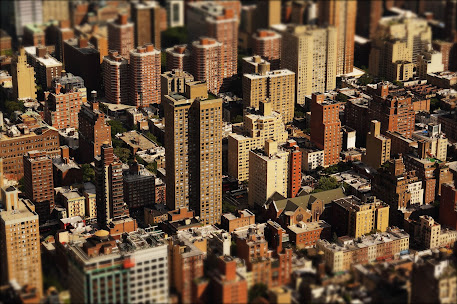Covid-19 has been a global challenge for the past few years. It altered our way of life and perception of the world. The reality of being on the frontline of this disturbance, the real estate business, took an enormous blow in many directions. Different places and different people raised crises, which diluted the pressure on the market. The real estate sector is buckling up with solutions and strategies to implement the new normal, as the entire world is adopting the new standards.
All stakeholders, including tenants, property owners, developers, along with other sub-sectors, like hospitality, retail, etc., dealt with an immediate counteraction. They affected office and industry for the distant future with low transaction volumes and increasing work from home culture.
Prolonged impact on real-estate
As the world’s largest asset class, real estate exceeds–by almost a
third–the total value of all stocks, shares, and securitized debt combined. In
India, real estate has always been growing exponentially and will be expected
to grow to nearly 1000 billion US dollars by the year 2030.
Though India is suffering in the real estate sector, in the distant future,
the graph of real estate market will go up drastically in the years to come.
Post-pandemic will be the new dawn. The mindset of the people will be
different as buyers. Their preferences and strategies will heavily get affected
by the post-pandemic situation. But the Real estate fundamentals are going
strong; leasing activity, capital availability, and firm leverage ratios showed
steady growth. The plans and solutions to various obstacles are being tackled
agreeably.
Few obstacles are in the flow of cash, low labor availability, lack of
long-term leasing opportunities. The partnership of government and the
businesses collectively needs to change the current retort to the virus and
fast-track the road to recovery.
Prolonged conduct changes
The long-term conduct will affect the real estate developers and other
stakeholders brought by the pandemic. Changing consumer patterns, large-scale
technology adoption, and more will come to play in the post-pandemic world. The
short- and long-term demand rate for real estate properties may confront a
permanent scarcity. It's becoming more popular to avoid business travel,
conferences, and to rely more on digital engagement and video conferencing,
which is reducing real estate revenue.
With the rise of eCommerce, online shopping has the potential to put
physical stores and malls out of business; This makes up a significant part of
the revenue.
Viable solutions to progress and recovery
As the saying goes, expect the unexpected, the pandemic has prepared us for
everything unforeseen. This has stepped up the game in the need for strategic
thinking paired with increased demands for digitization and deep analytics
capabilities.
The new normal digital age transformation has fastened up the pace and
advancement in technology like Internet of Things (IoT), Robotics Process Automation
(RPA), analytics for decision making & mobility solutions and data science
has eased lease negotiations, asset valuation and increased the visibility and
productivity, which reduced the recovery time while facilitating business
after-effects.
As a result, the post-pandemic period will be defined by digital
irreversibility. And, for prudent capital deployment, effective property
management, virtual tours, and other functional aspects of real estate, the
aforesaid technologies will play a larger role.
Changes in buyer attitude, rising job insecurity, salary reductions, falling
buyer intent, and low business volume could all have a short-term impact on
sales and investment. Digital solutions, on the other hand, will hasten the
recovery by lowering costs, sustaining growth, and fostering a progressive real
estate market.
In the face of the pandemic, business, civil society, and government have
come together to form a united front. Collaboration and innovation will be
critical to navigating these unprecedented times, particularly in real estate.
Today's businesses must choose between embracing technology and risking their
survival. Those who have not invested in technology will be forced to do so at
some point.
The year 2020 saw a lot of changes, and the year 2021 is still dealing with
them. With fresh vision and digital transformation, change became the "new
normal." It is now obvious that while 2021 will not ignore the challenges
of a pandemic-saturated economy, it will adjust to the "new normal,"
and the year will now settle into a phase of global real estate expansion and
investment.
Recovery from the storm
There is a lot of cross-examining of the economy in the real estate sector
after the pandemic stuck in the world. What are the changes that people are
going to witness in the market? Will the changes be permanent? Will the real
estate market hit the jackpot growth rate? Or the previous market rates are
going to bounce back? Will people expect the pre-pandemic style to continue or
expect a change?
There has been a gradual lifting of travel restrictions and lockdowns in
various parts of the world, which has resulted in the real estate sector
experiencing a revival and improvement in the income of the working class. Cross-border
investments are igniting, even though investors are still skeptical of the
economy. Low-interest rates have been offered by financial institutions, and
governments have offered monetary stimulus to encourage wide investment and
long-term market expansion, with the real estate industry benefiting
significantly from the programme.
The twirls and turns in the real estate sector, during the pandemic, have
created a lot of uncertainty among the buyers. But once the dust settles and
Indians continue to adapt, everything will fall into its place.
References:
Real Estate Industry Growth - Infographic (ibef.org)

thank you for sharing your insight
ReplyDeletevery nice. keep it up
ReplyDeleteall the best. keep going
ReplyDelete